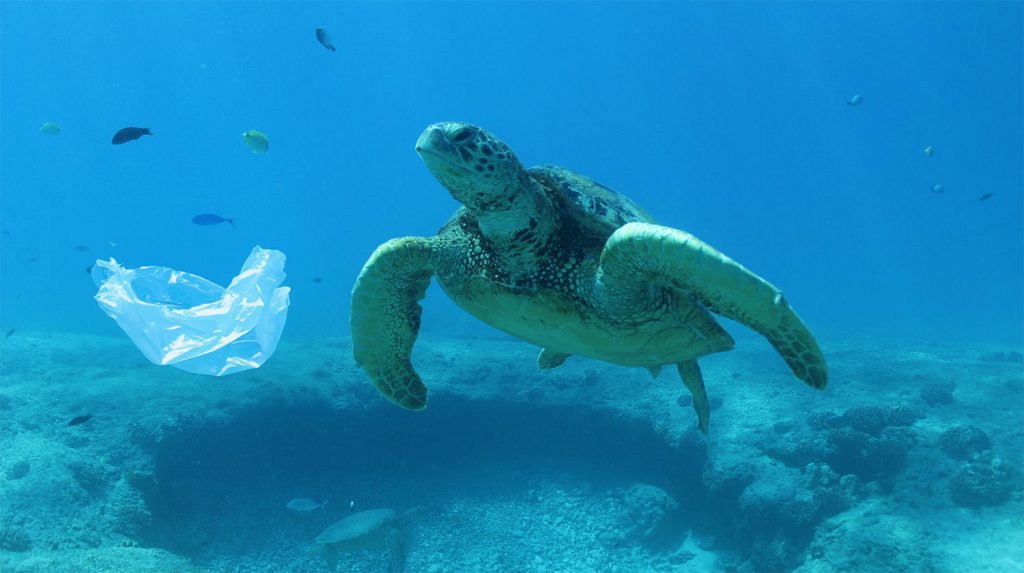Sea Turtles and Plastic Pollution: A Growing Threat
Sea Turtles and Plastic Pollution: A Growing Threat

Sea turtles, the majestic creatures that have gracefully navigated the Earth’s oceans for millions of years, now face an unprecedented challenge – plastic pollution. These marine reptiles, already vulnerable due to factors like habitat loss and climate change, are increasingly falling victim to the pervasive presence of plastic debris in their habitats. Plastic pollution poses a direct threat to sea turtles through ingestion and entanglement, both of which have severe consequences for their health and survival.
One of the primary issues is the turtles’ mistaken ingestion of plastic items, such as bags and fragments, often confusing them with food. The plastic can obstruct their digestive systems, leading to malnutrition and, in some cases, death. Additionally, sea turtles can become entangled in abandoned fishing gear and other debris, hindering their ability to swim, forage, and escape predators. The rising tide of plastic pollution exacerbates these risks, making it imperative to address this issue urgently.
Possible Plastic Pollution Solutions
Efforts to mitigate the impact of plastic pollution on sea turtles involve a multi-faceted approach. First and foremost, there is a crucial need for increased awareness and education regarding the consequences of plastic waste in marine environments. Efforts to cleanup the waste are imperative, but it is virtually impossible to cleanup all of it and there is a chance that the garbage has already done it’s damage. The goal is to prevent these items from entering ecosystems in the first place. Public campaigns, school programs, and community initiatives can play a vital role in informing people about responsible waste disposal and the importance of reducing single-use plastics.
Another key solution lies in the development and implementation of sustainable waste management practices. Proper disposal and recycling of plastics can significantly decrease the amount of debris entering marine environments. Governments, businesses, and communities can work together to enforce and promote recycling programs, reducing the overall plastic footprint.

Beach Clean-up Initiatives
Moreover, supporting and engaging in beach clean-up initiatives is a practical way for communities to directly contribute to reducing plastic pollution. These efforts not only remove existing debris but also raise awareness about the issue. Collaborations between local communities, environmental organizations, and governments can enhance the effectiveness of such clean-up endeavors. In June of 2023, And You Creations sponsored a beach cleanup in partnership with the Surfrider Foundation, a non-profit organization that hosts these kinds of events periodically throughout the year, and offers businesses and members of the community the opportunity to help cleanup their local beaches. Events like this not only remove tens of thousands of pounds of trash a year, but they also raise awareness for the cause, encouraging others to do the same in their area.
Innovation in materials is also critical. Research and development of alternative, biodegradable materials that can replace traditional plastics can significantly decrease the environmental impact. Governments and industries should invest in and incentivize the production and adoption of such alternatives to promote a more sustainable future.
Addressing the threat of plastic pollution to sea turtles requires a global commitment to change behaviors, policies, and industry practices. By combining education, sustainable waste management, community involvement, and technological innovation, we can strive to create a world where these ancient mariners can thrive once again, free from the looming menace of plastic pollution. If you or someone you know is interested in helping to keep beaches clean, you can reach out to And You Creations to join one of our organized cleanups or you can join any of our tours at sea or on land, where we make it our responsibility to remove at least one piece of trash from the ocean or island and are endorsed by the Sustainable Tourism Association of Hawai’i.
